Ilhan Omar’s Very Big, Very Important Win
Running as an outspoken supporter of a ceasefire in Gaza, Omar dramatically increased her Democratic primary victory margin. Shouldn’t we be paying more attention?
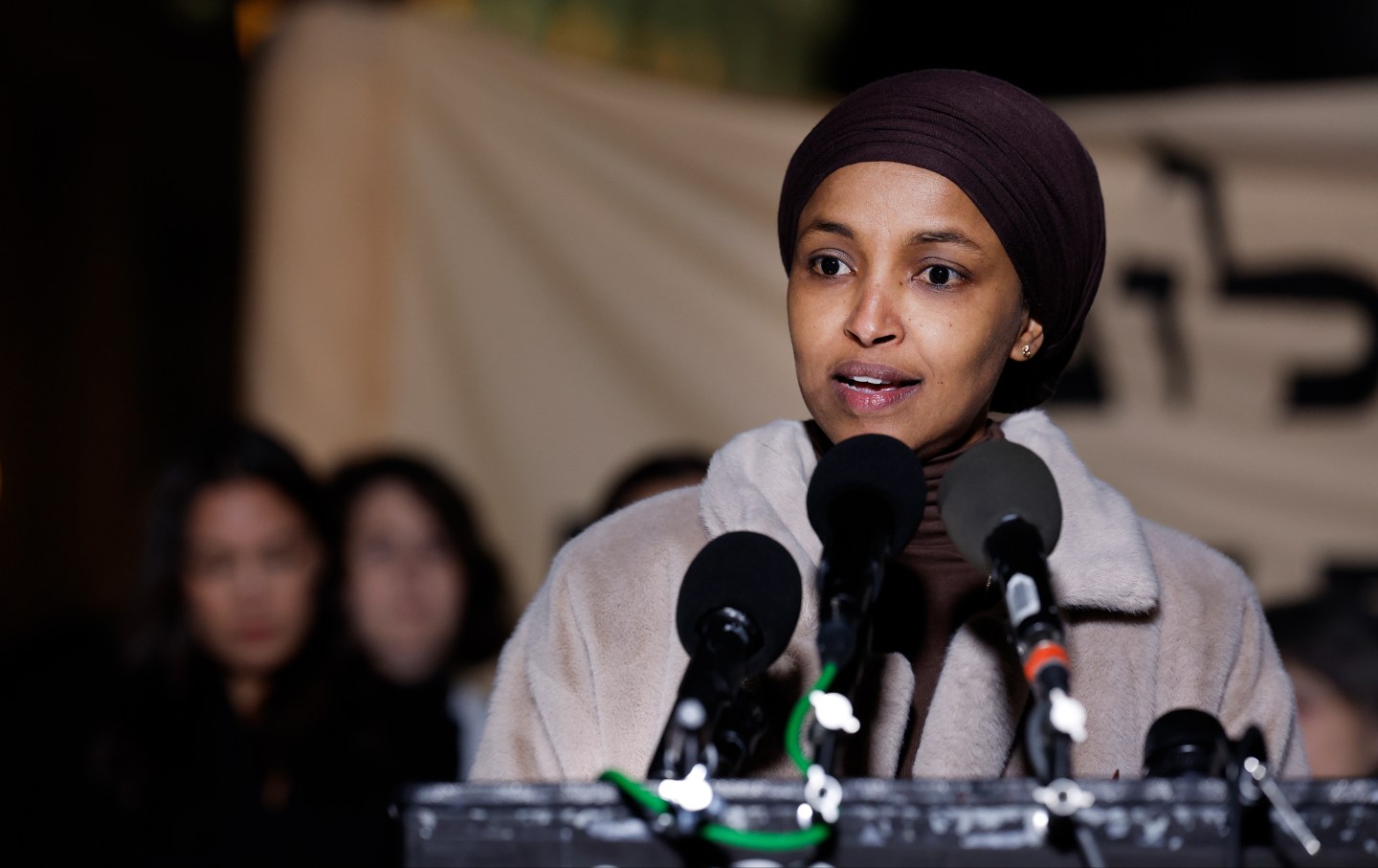
Ilhan Omar speaks during a news conference calling for a ceasefire in Gaza outside the US Capitol on November 13, 2023.
(Anna Moneymaker / Getty Images)There has never been any question about where US Representative Ilhan Omar, DFL-Minnesota, stands on the issue of a ceasefire in Gaza. For 10 months, she has declared, “I’m committed to peace and a prompt ceasefire.” She was also an original sponsor of the House ceasefire resolution and has championed every honest effort to end the violence and save Palestinian lives.
On Tuesday, Omar won renomination to her House seat over a prominent, amply funded opponent who made criticism of the representative’s outspoken advocacy for Palestinian rights a core part of his campaign. Notably, she did not just squeak by. Omar beat her rival, former Minneapolis City Council member Don Samuels, by 14 points—a huge expansion of her winning margin from 2022, when Samuels came within two points of defeating her.
The Democratic-Farmer-Labor Party primary victory assures Omar reelection in her overwhelmingly DFL district, and the representative was in a celebratory mood on Tuesday night.
“We run the politics of joy,” Omar announced to her supporters at her victory party in Minneapolis. “We know it is joyful to want to live in a peaceful and equitable world.”
But this is not just another result from another primary.
Omar’s big win should be big news. After all, just last week, the narrow defeat of Cori Bush, Omar’s close ally in the fight to save lives in Gaza, was treated as a major political development. The same was true in June when New York Representative Jamaal Bowman was beaten for reelection in that state’s primary.
There’s no question that it is significant when critics of the assault on Gaza are defeated—even when those defeats result less from a rejection of their stands than from massive spending by the political action committees associated with the American Israel Public Affairs Committee, which supports the policies of the extreme right in Israel, and billionaire Republican donors from across the country. But it is also significant that most of the House’s outspoken supporters of a ceasefire have won their reelection bids.
For the most part, they have done so as Omar did, by building multiracial, multiethnic coalitions—and by developing bases of progressive small donors (Omar raised roughly $6.2 million for this year’s race)—that are so strong that AIPAC-aligned super PACS such as the United Democracy Project, and their billionaire allies, have been scared off.
But isn’t that fact at least as significant as the detailing of successes AIPAC secured only after mounting multimillion-dollar campaigns against Democrats such as Bush and Bowman? Isn’t it a major political development that Omar—who, because of her close 2022 primary, came into the 2024 election as potentially one of the most vulnerable of the pro-ceasefire incumbents—proved to be unbeatable? Shouldn’t it be noted that Omar articulated her position so ably—expressing horror at the October 7 Hamas attack that targeted Israeli kibbutzim and a music festival, while at the same time condemning the targeting of Palestinian civilians and infrastructure in Gaza by Israeli Prime Minister Benjamin Netanyahu—that she drew endorsements from Muslims, Christians, and Jews for her reelection bid? Isn’t it consequential that Omar did such a good job of organizing her supporters, and winning the endorsement of the DFL, that AIPAC recognized that she couldn’t be defeated? And that she ultimately won her primary by more than 16,000 votes?
Isn’t it newsworthy that Omar was not alone in victory? That the four original members of “the Squad”—New York’s Alexandria Ocasio-Cortez, Michigan’s Rashida Tlaib, Massachusetts’s Ayanna Pressley, and Omar—all have, as ardent ceasefire backers, either won primaries or positioned themselves to be renominated without serious opposition? Isn’t it equally newsworthy that the vast majority of pro-ceasefire House members who have sought reelection this year—from Greg Casar in Texas to Delia Ramirez in Chicago to Summer Lee in Pennsylvania to Mark Pocan in Wisconsin—have been renominated with wide support?
The results from around the country back up IfNotNow Movement national spokesperson Eva Borgwardt’s assertion, “Being pro-ceasefire is good policy and good politics.”
Just as importantly, the results from Ilhan Omar’s Minnesota primary win on Tuesday highlight a fundamental reality of the 2024 election cycle: In fair fights, where massive expenditures of outside money by billionaire-backed Super PACs do not warp the process, supporters of a ceasefire don’t just win. They win big.
“This year has proven clearly that right-wing interests and MAGA megadonors see the Squad as an existential threat to their extremist agenda. In nearly every primary this cycle, our progressive champions in Congress faced the organized efforts of AIPAC, Republican megadonors, right-wing Super PACs, and corporate interests who were united in their desire to drag our democracy through the mud to protect their own self-interests and profits,” Alexandra Rojas, the executive director of Justice Democrats, a group that has organized support for Squad members and their allies, explained after Omar’s win. “This race looks more like what our democracy could look like if we end the influence and bottomless spending of dark money corporate Super PACs in our elections and put people back at the center of our democracy, and democracy back at the center of our Party.”
That’s a lesson for Democrats—including Kamala Harris and Tim Walz—going forward. The call for a ceasefire in Gaza is not only morally just. It’s popular with the American people. And every effort should be made to ensure that it is not silenced by out-of-town super PACs and the right-wing billionaire funders who meddle in Democratic primaries.
Popular
“swipe left below to view more authors”Swipe →Support independent journalism that exposes oligarchs and profiteers
Donald Trump’s cruel and chaotic second term is just getting started. In his first month back in office, Trump and his lackey Elon Musk (or is it the other way around?) have proven that nothing is safe from sacrifice at the altar of unchecked power and riches.
Only robust independent journalism can cut through the noise and offer clear-eyed reporting and analysis based on principle and conscience. That’s what The Nation has done for 160 years and that’s what we’re doing now.
Our independent journalism doesn’t allow injustice to go unnoticed or unchallenged—nor will we abandon hope for a better world. Our writers, editors, and fact-checkers are working relentlessly to keep you informed and empowered when so much of the media fails to do so out of credulity, fear, or fealty.
The Nation has seen unprecedented times before. We draw strength and guidance from our history of principled progressive journalism in times of crisis, and we are committed to continuing this legacy today.
We’re aiming to raise $25,000 during our Spring Fundraising Campaign to ensure that we have the resources to expose the oligarchs and profiteers attempting to loot our republic. Stand for bold independent journalism and donate to support The Nation today.
Onward,
Katrina vanden Heuvel
Editorial Director and Publisher, The Nation
More from The Nation
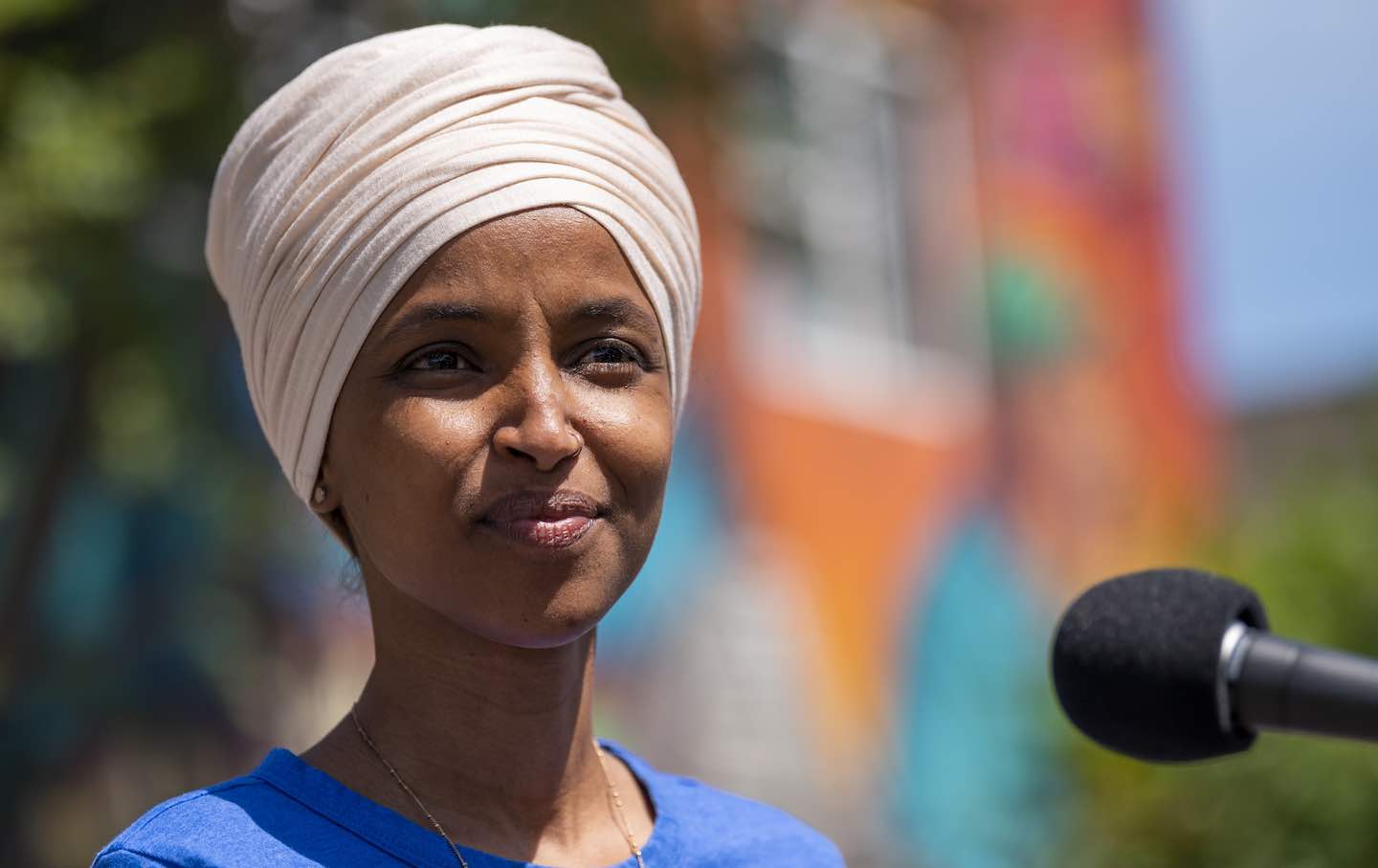
Ilhan Omar's American Dream Is Too Strong To Be Diminished Ilhan Omar's American Dream Is Too Strong To Be Diminished
Thirty years after she came to the US, the Minnesota representative keeps the faith in an America that will ultimately reject the divisive politics of Trump and his minions.

Denying Reality as We Burn Denying Reality as We Burn
Check out all installments in the OppArt series.
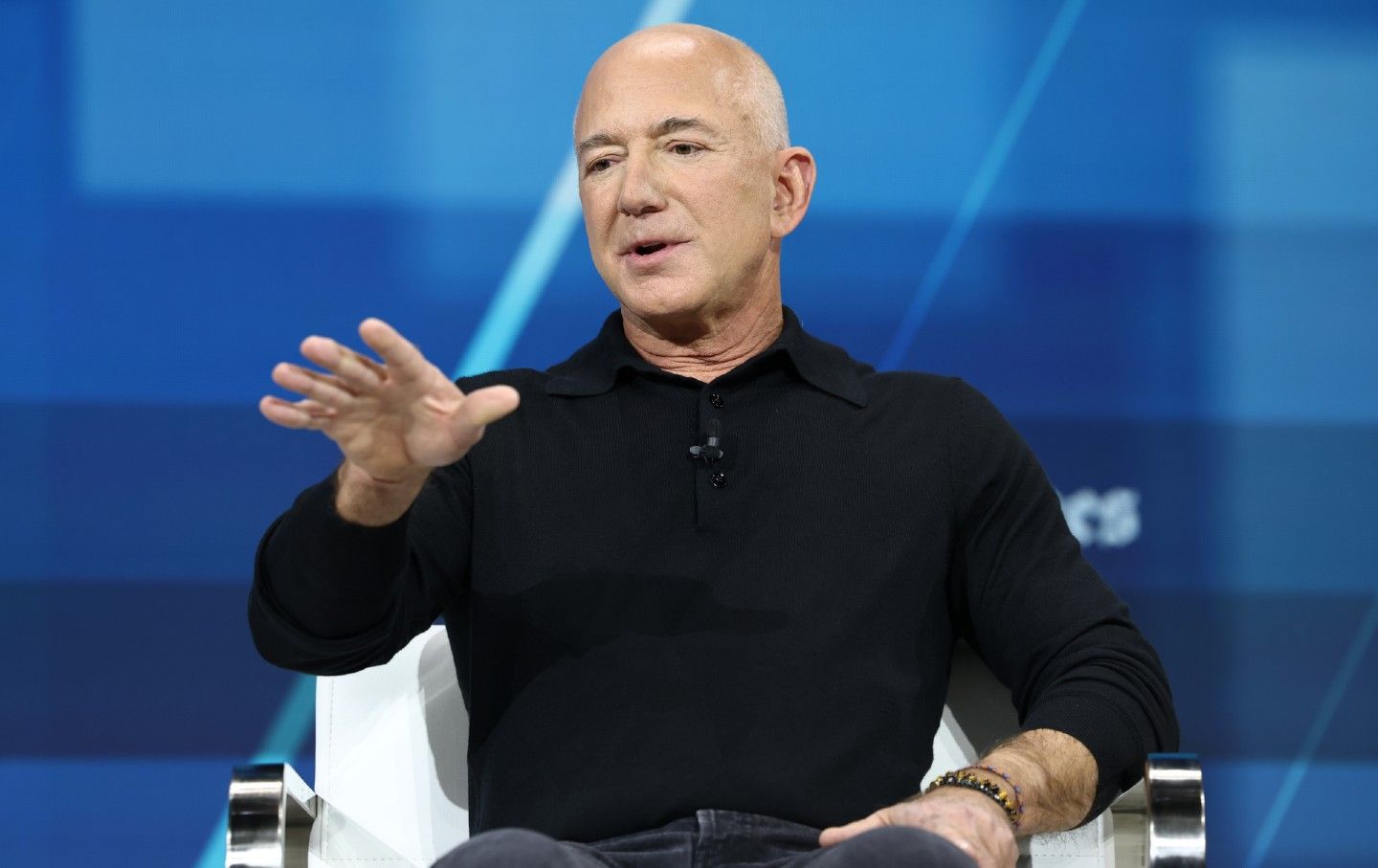
Can the Free Press Be Saved? Can the Free Press Be Saved?
It will take a new movement of responsible readers and benefactors to protect independent media.
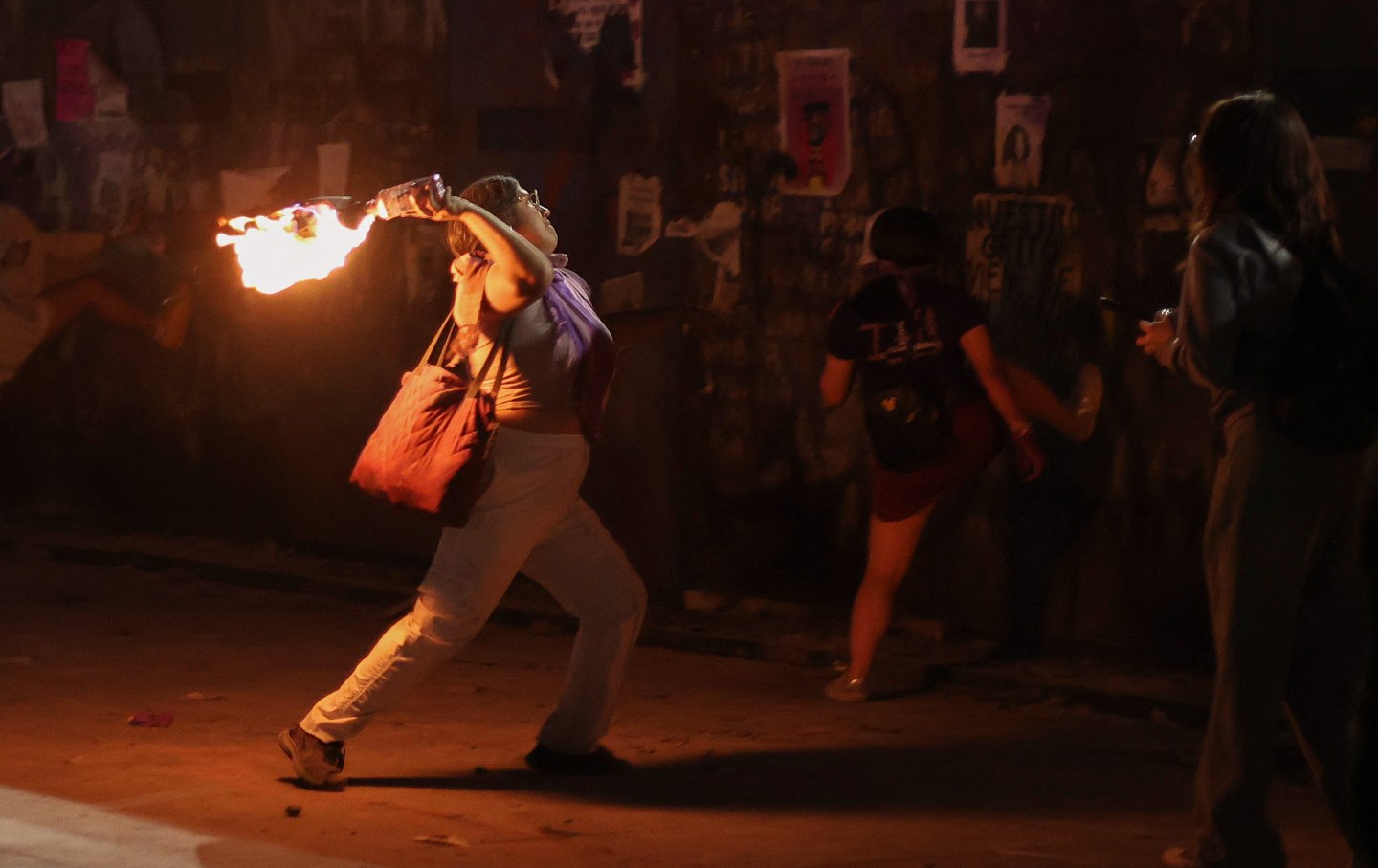
Is Political Violence Ever Acceptable? Is Political Violence Ever Acceptable?
Natasha Lennard argues that it’s harmful to acquiesce to the state’s determinations of violence, while David Cortright writes that violent acts prevent mass resistance movements.
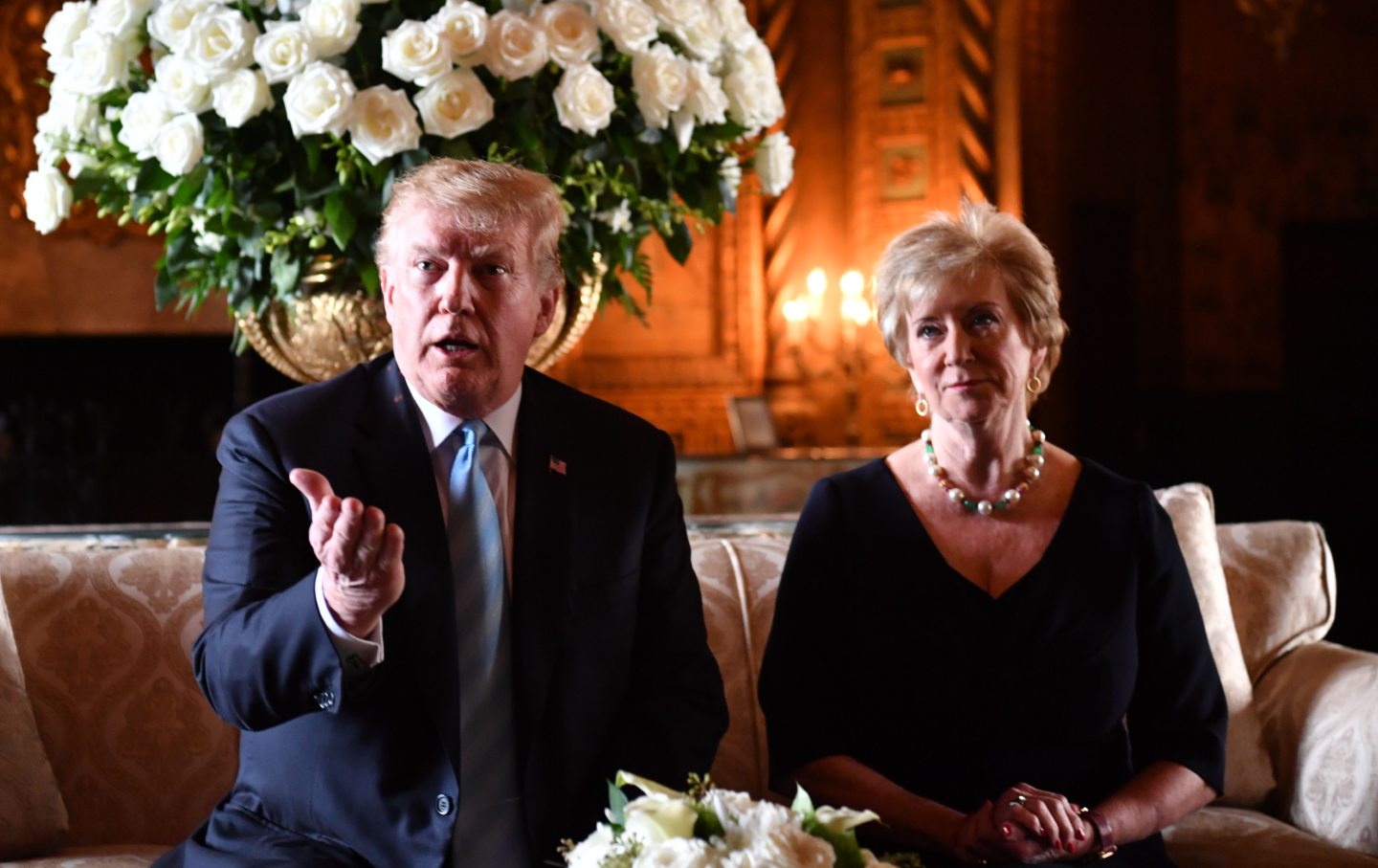
Inside Trump’s Decimation of the Department of Education Inside Trump’s Decimation of the Department of Education
Current and former employees at the agency spoke with The Nation about the chaos as 1,300 people were laid off on Tuesday. “The ramifications of this will be enormous.”
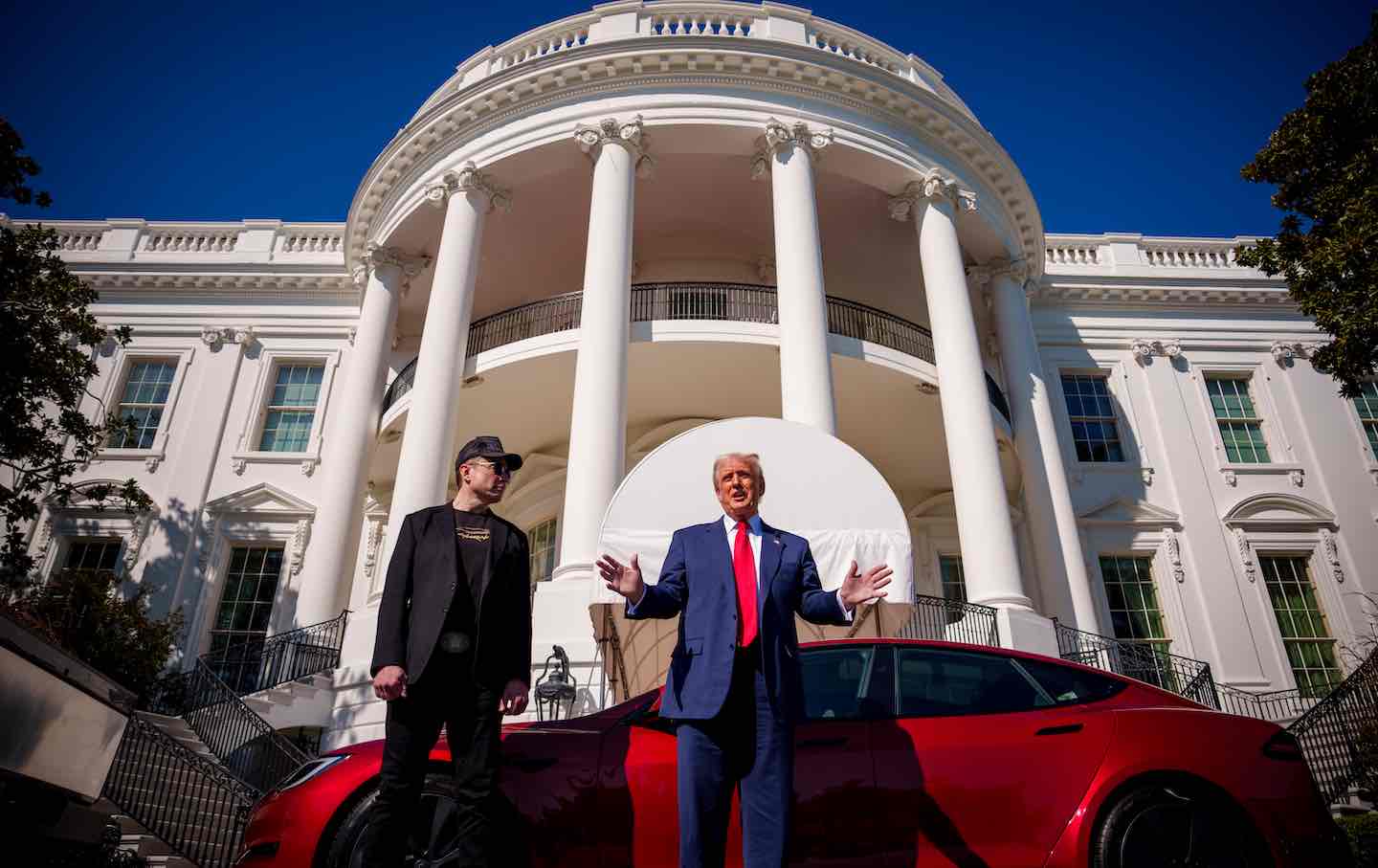
The Corruption Being Obscured by Trump’s Tesla Spectacle The Corruption Being Obscured by Trump’s Tesla Spectacle
Despite how it appeared, Trump wasn’t acting like a used-car salesman for Teslas out of the goodness of his heart.


